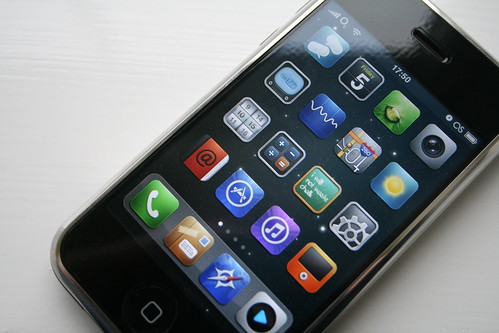
Two groups emerged.
The Assistant: TripChill, WorldMate and to a lesser extent iM@ focus on giving consumers real time local information. TripChill and WorldMate impressed me with the real time ability to check the latest travel information associated with an itinerary around flight changes, hotel reservations and support information (weather, parking, driving options). Looking at these tools in action, I can finally see delivery on the promise that mobile has been making to online travel for ten years. The ability for a traveller to be able to seamlessly update and change trips based on conditions that can only be known through real-time connections is what we have all be wanting from mobile.
The locator and sharer: iM@ and ekit focus on the destination - what to do when you are there. iM@ is an adverting and offer driven business. Focused on pitching activities to travellers driven by destination and advertiser promotion. ekit is something else entirely. This (Australian based) company made it's start in international phone-cards and global SIMs. The product they displayed here was an innovative (and at times unsettling) travel journal product where GPS technology linked a SIM purchased from ekit. This SIM can be linked to an online travel journal (think blog). The travel journal can be instantly updated as to where to you are every time you make a phone call. That's right you make a call, the phone registers where you are and then posts to the travel journal your location and time of call. Posts can be enhanced with SMS text content, photos and more. This is the ultimate trip blog tool as it knows were you are but is also very scary because...well..it knows exactly where you are and what you are doing. I love the idea but feel very uncomfortable using it.
Looking at these four companies I feel like we finally getting somewhere with mobile in online travel.
thanks to William Hook on flickr for the photo
2 comments:
Thanks for mentioning ekit. We understand that location is a sensitive issue for many people so we've built settings to allow people to control how much is shown and who can access it.
Sharing your location is, I think, most relevant when you travel. It's interesting and exciting for my friends to know that I am in Rome. It's not very interesting to know that I am in the office.
We have tried to make the privacy controls as simple as possible by using a visitor password. Other options are to make everything public (blog-style), or require everyone to have an account and allow you to choose friends (facebook-style). We think the visitor password is a better option for people who will use the journal casually and whose readers need a low barrier to entry (Mum and Dad).
Rupert
Rupert - thanks the response. Would enjoy a chance to interview you when we are all back in Oz
Post a Comment